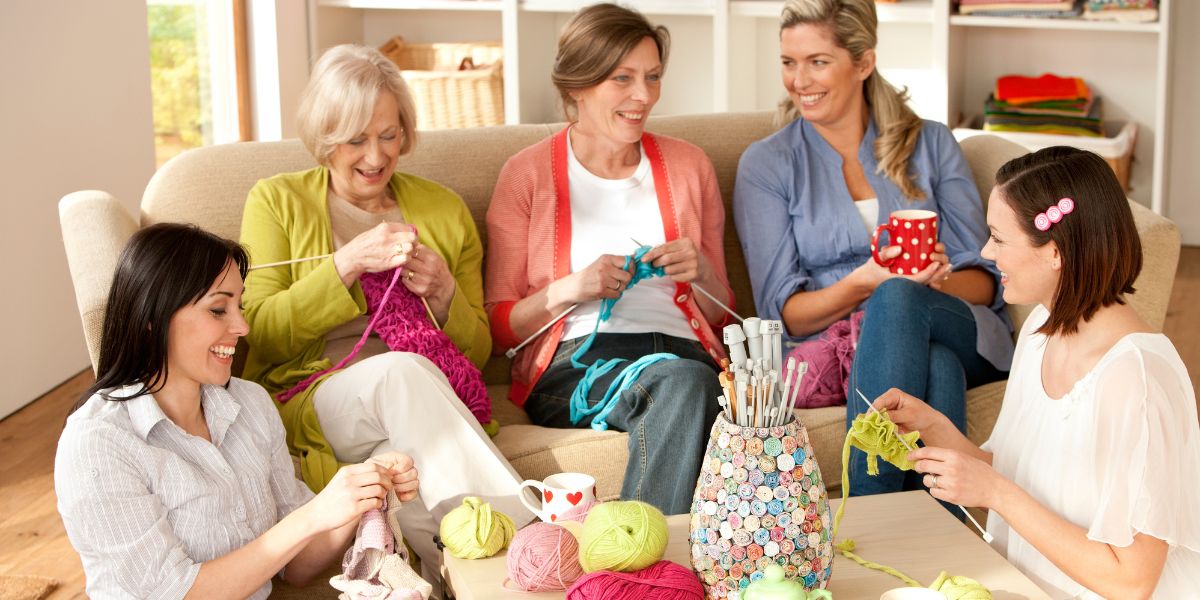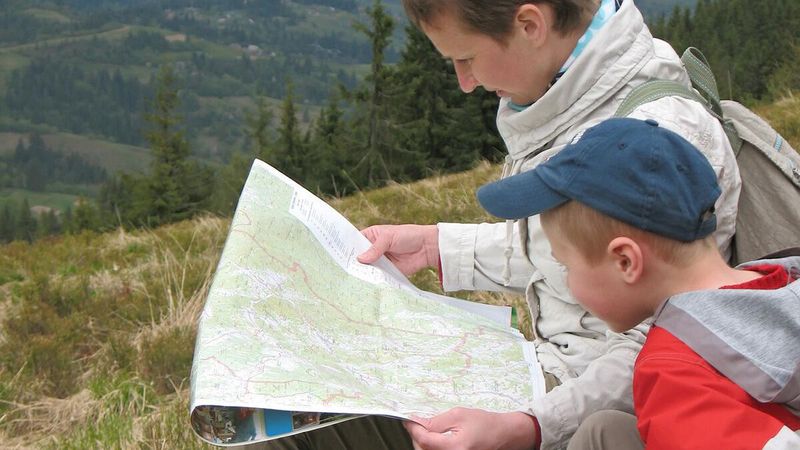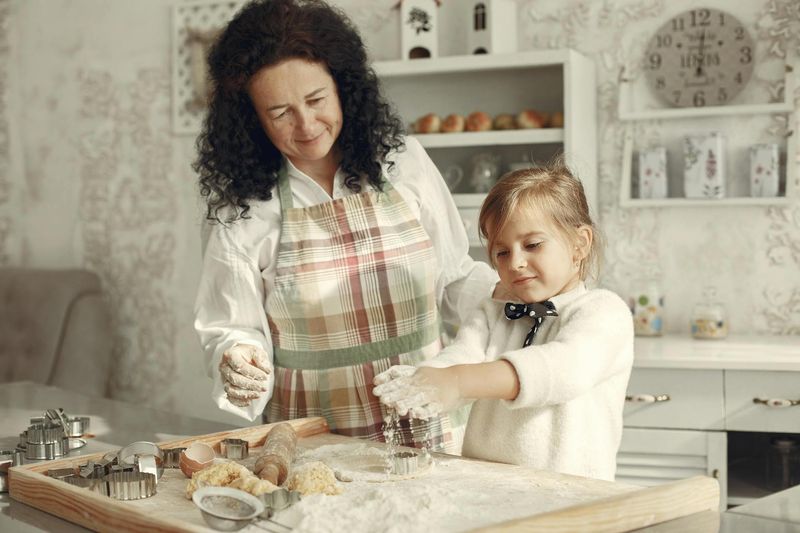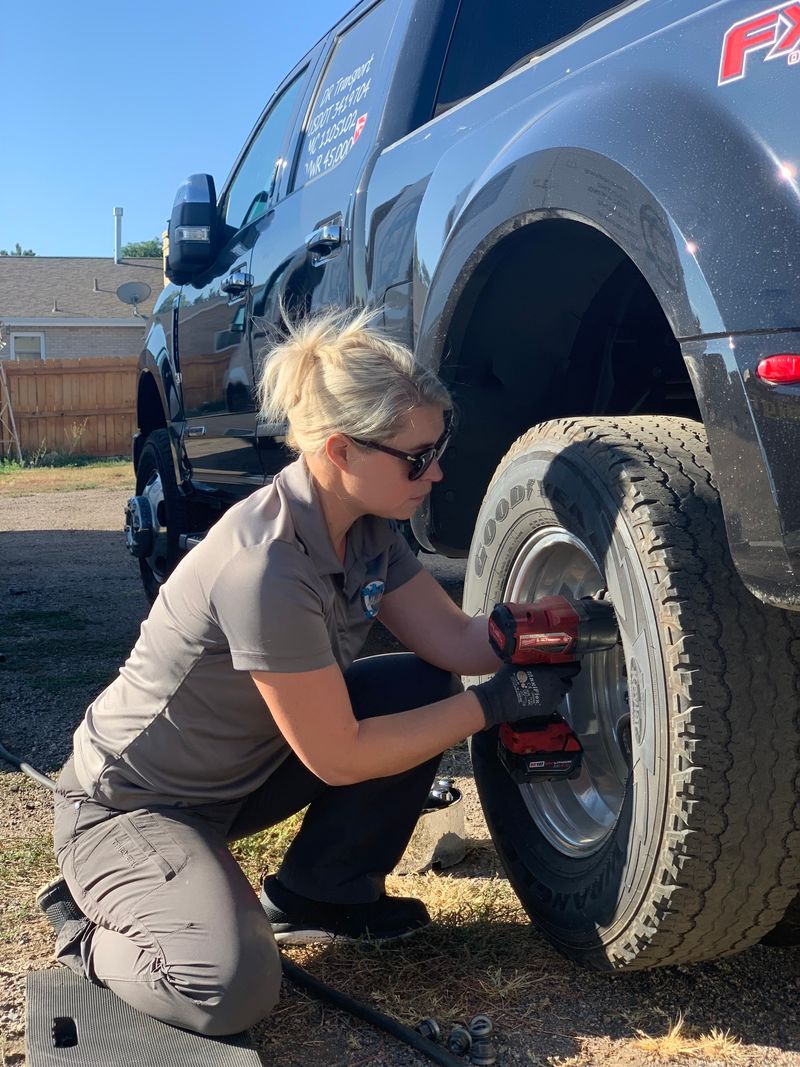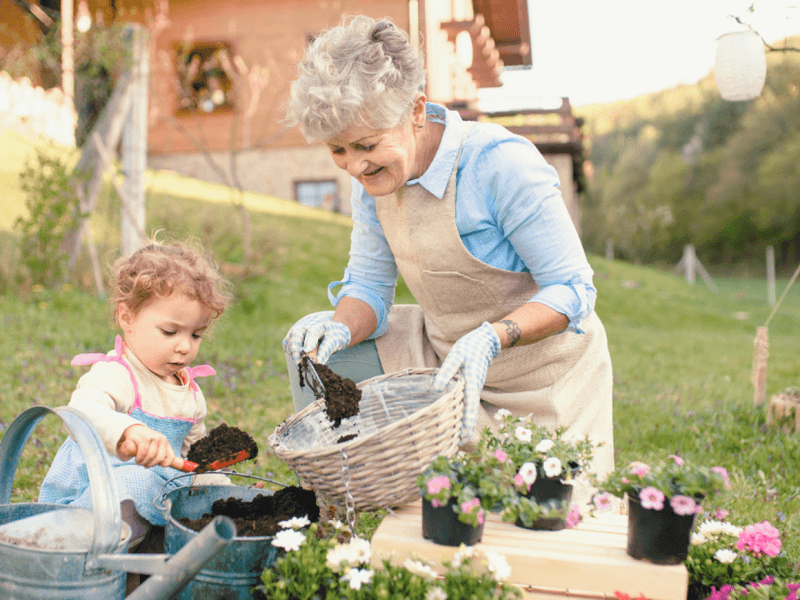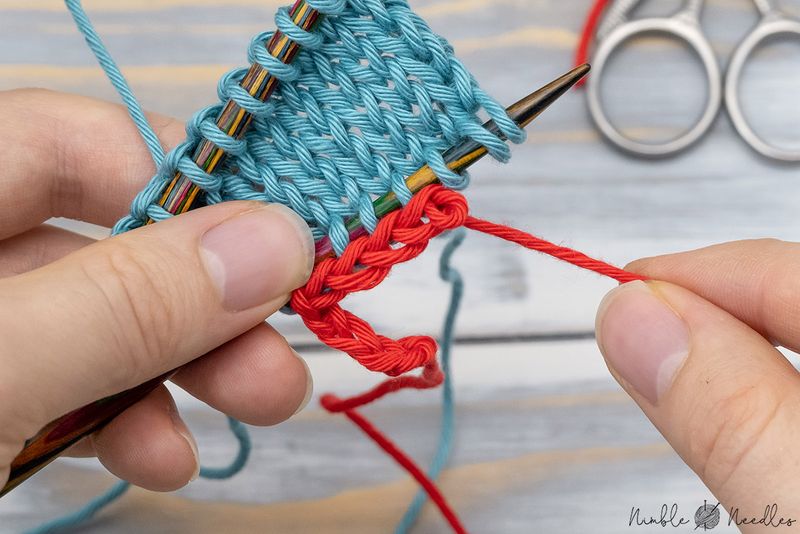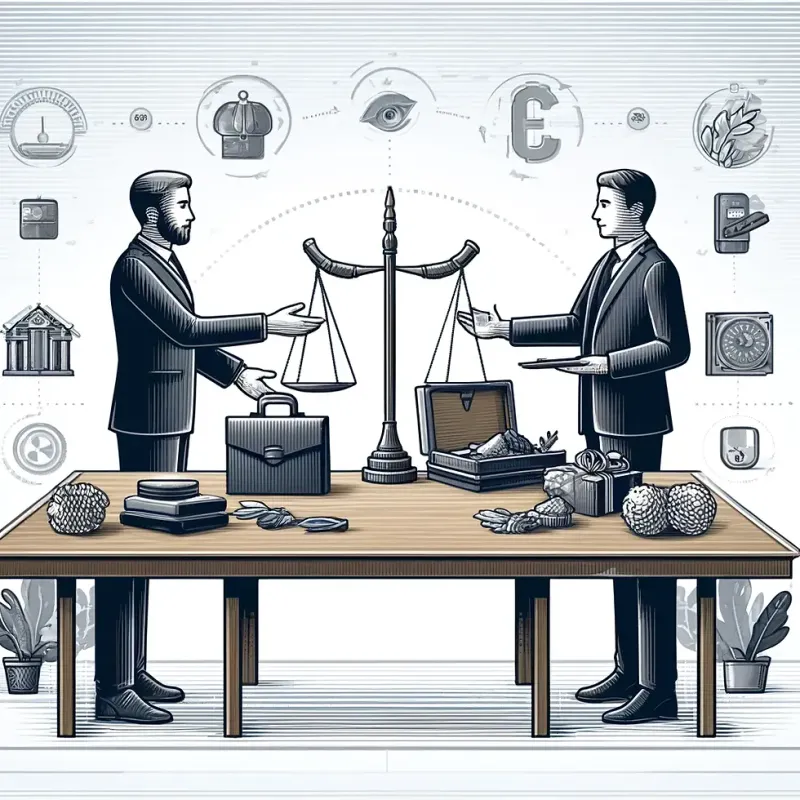In today’s fast-paced digital world, many of the practical skills that Older Generations once mastered have been left behind. These skills, though seemingly outdated, hold immense value in fostering independence and resilience.
Millennials and Gen Z, entrenched in technology, often find themselves longing for these lost arts. From practical home repairs to interpersonal communication, these forgotten skills offer solutions to everyday challenges and enrich the human experience.
Rediscovering these skills not only bridges the generation gap but also empowers the younger generations to embrace self-sufficiency and creativity in a rapidly changing world.
1. Sewing and Mending
In an age of fast fashion, the art of sewing and mending has faded into obscurity. Baby Boomers grew up learning to sew their own clothes and mend damages, fostering creativity and sustainability.
Today, Millennials and Gen Z often discard torn garments, contributing to environmental waste.
Mastering this skill not only saves money but also promotes individuality in fashion choices. Imagine the satisfaction of repairing a beloved outfit or customizing it to reflect personal style.
Embracing sewing can transform the way younger generations interact with their wardrobe, offering a creative outlet and reducing waste.
2. Cursive Writing
The elegance of cursive writing is a lost art among younger generations. Baby Boomers learned cursive as a standard part of their education, enabling them to write beautifully. Cursive writing enhances brain development, improves motor skills, and aids in memory retention.
For Millennials and Gen Z, accustomed to typing, cursive writing offers a unique way to connect with the written word.
Practicing this skill not only encourages mindfulness but also imbues personal notes with a touch of elegance. Rediscovering cursive can enrich one’s communication style and make written correspondence feel more intimate.
3. Map Reading
Before GPS, map reading was an essential skill for navigation. Baby Boomers were adept at reading maps to plan journeys, understanding terrain and distances. This skill fosters spatial awareness and problem-solving.
For Millennials and Gen Z, relying on digital navigation can lead to complacency when technology fails. Learning to read maps encourages critical thinking and independence. It empowers individuals to explore new places confidently, without digital aids.
Embracing map reading can transform travel experiences, offering a sense of adventure and accomplishment that digital navigation may lack.
4. Home Cooking from Scratch
Home cooking from scratch was a staple for Baby Boomers, who valued nutritious, homemade meals. This skill involves understanding ingredients, flavors, and techniques to create wholesome dishes.
Millennials and Gen Z often rely on convenience foods, missing out on the joy of cooking from scratch. This skill allows for healthier eating habits and fosters a connection to cultural traditions.
Learning to cook at home not only enhances well-being but also offers a creative and rewarding experience. Rediscovering this skill can lead to a more balanced lifestyle and an appreciation for culinary arts.
5. Basic Car Maintenance
Basic car maintenance is a skill many Baby Boomers took for granted. They learned to change tires, check oil levels, and troubleshoot minor issues. This knowledge ensured safety and longevity of their vehicles.
For Millennials and Gen Z, reliant on mechanics for minor repairs, learning basic car maintenance fosters independence and confidence. It empowers them to handle roadside emergencies and understand their vehicles better.
This skill not only saves money but also instills a sense of accomplishment. Embracing car maintenance can transform the driving experience into a more self-reliant and cost-effective venture.
6. Handwriting Letters
Before emails and texts, handwriting letters was the primary mode of personal communication. Baby Boomers cherished the personal touch and thoughtfulness of handwritten correspondence. This skill enhances expression and emotional connection.
For Millennials and Gen Z, accustomed to instant communication, letter writing offers a slower, more meaningful way to connect. It encourages reflection and genuine interaction.
Rediscovering this skill can deepen relationships and offer a tangible record of personal history. Writing letters can transform communication into an art form, providing an enriching and heartfelt experience for both sender and recipient.
7. Budgeting Without Apps
Budgeting without apps was a necessity for Baby Boomers. They manually tracked expenses, balanced checkbooks, and planned finances. This skill fostered financial literacy and discipline.
For Millennials and Gen Z, reliant on budgeting apps, understanding manual budgeting enhances financial awareness and control. It offers a clearer view of spending habits and savings goals.
Embracing this skill empowers individuals to make informed financial decisions and cultivate financial independence. Rediscovering manual budgeting can transform financial management into a more conscious and deliberate practice, free from digital distractions and dependencies.
8. Gardening for Food
Gardening for food was a common practice among Baby Boomers, who cultivated their own fruits and vegetables. This skill promotes sustainability and self-sufficiency, connecting people to nature.
For Millennials and Gen Z, accustomed to store-bought produce, gardening offers a chance to understand the origins of food. It encourages healthier eating and reduces the carbon footprint.
Embracing gardening can transform dietary habits and foster a deeper appreciation for the environment. Rediscovering this skill offers a rewarding and educational experience, cultivating patience and nurturing a connection with the earth and its cycles.
9. DIY Home Repairs
DIY home repairs were second nature to Baby Boomers, who often fixed household issues themselves. This skill promotes resourcefulness and problem-solving.
For Millennials and Gen Z, reliant on professionals for minor repairs, learning DIY skills saves money and enhances self-reliance. It empowers them to tackle challenges with confidence.
This skill not only reduces dependency on external help but also fosters a sense of pride and accomplishment. Embracing DIY home repairs can transform the home into a more personalized and well-maintained space, offering practical solutions and creative freedom.
10. Canning and Preserving
Canning and preserving were essential skills for Baby Boomers, ensuring food availability year-round. This practice fosters self-reliance and sustainability.
For Millennials and Gen Z, accustomed to readily available processed foods, canning offers a healthier and environmentally friendly alternative. It allows for creative experimentation with flavors and ingredients.
Rediscovering this skill not only enhances food security but also provides a satisfying and educational experience.
Embracing canning and preserving can transform the way individuals interact with food, instilling a greater appreciation for seasonal produce and traditional culinary practices.
11. Knitting and Crocheting
Knitting and crocheting were popular pastimes for Baby Boomers, offering relaxation and creativity. These skills produce unique, handmade items.
For Millennials and Gen Z, accustomed to store-bought textiles, knitting and crocheting offer a creative outlet and stress relief. They encourage mindfulness and patience. Rediscovering these skills can transform leisure time into a productive and fulfilling activity.
Embracing knitting and crocheting not only fosters craftsmanship but also provides an opportunity to create personalized gifts. These skills bridge the gap between generations, offering a timeless and rewarding pursuit that combines tradition with modern creativity.
12. Public Speaking
Public speaking was a vital skill for Baby Boomers, essential in various social and professional contexts. This skill fosters confidence and clear communication.
For Millennials and Gen Z, often communicating through digital platforms, public speaking offers a chance to connect in person. It enhances leadership abilities and interpersonal skills.
Rediscovering public speaking can transform the way individuals express ideas and engage with others.
Embracing this skill provides opportunities for personal and professional growth, allowing for impactful and persuasive communication that resonates with audiences and builds strong connections.
13. Navigating Without Technology
Navigating without technology was a requisite skill for Baby Boomers, who relied on natural cues and maps. This skill encourages observation and critical thinking.
For Millennials and Gen Z, reliant on GPS and smartphones, learning to navigate without technology fosters independence and resilience. It transforms exploration into an adventure, building confidence in one’s abilities.
Rediscovering this skill offers a refreshing break from screens, deepening connections with the environment.
Embracing navigation without technology can transform travel experiences, allowing for spontaneous exploration and a greater sense of achievement and connection with the world.
14. Barter and Negotiation
Barter and negotiation were everyday skills for Baby Boomers, who often traded goods and services. These skills enhance interpersonal communication and financial acumen.
For Millennials and Gen Z, accustomed to fixed prices and online shopping, bartering offers a dynamic and interactive way to engage in commerce. It builds confidence and adaptability in financial transactions.
Rediscovering this skill can transform the way individuals perceive value and exchange. Embracing barter and negotiation provides opportunities for personal empowerment and resourcefulness, fostering a deeper understanding of economic interactions and human relationships.
